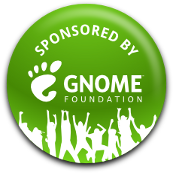Well, as in the previous hackfest, I planned to make a post per day, but in the end I didn’t. Next time I will not make any plan.
Yesterday we had our last day of the hackfest. It was, in my opinion, a productive Hackfest where each one had the opportunity to work with other people working in the same field, and discuss several topics regarding the current situation. If you want to know all of the details and conclusions, you could read a minutes-like brainstorming document on the wiki. But If you were to ask me to pick just one, I would mention the discussion about enabling the accessibility support by default. The main conclusion was stop to use the atk-bridge as a module, and instead have that feature integrated. Doing that has several advantages, including having it compiled (and thus tested) when someone compiles GTK+ or any GTK+ app, and not only when you want to compile the “accessibility stuff”. The implementation details are still not clear. Convert atk-bridge to a library and add a dependency on GTK+ and others? Integrate it in ATK (making the bridge something like the DBUS backend)? Integrate it in GTK+? Forget ATK, and let GTK+ talk directly with the accessibility tools using GDBUS (an option that I feel is too drastic or non practical, but still in the mind of Benjamin)? Now is the time to debate it, in order to have something decided by 3.4, which we can start to testing properly at the beginning of the 3.6 cycle. Interesting times these days.
As in the previous hackfest, other conclusion is that there is a lot of work to do, but not a lot of people to do it. And this was reflected by the amount of people in attendance (some photos here). Anyway, although we were not a lot of people, we had a lot of different backgrounds represented at the hackfest. People from GTK+, ATK, AT-SPI2, WebkitGTK, Mozilla, assistive tools and QT. For example, in several discussions Frederik Gladhorn explained how the qt-bridge implements certain features, in some cases in an different way than how atk-bridge does the same thing, as Mike noted recently on his blog.
Finally, I want to thank everyone who came to this hackfest, as they made this hackfest possible. I also want to thank Igalia, GNOME Foundation and Mozilla Foundation for their sponsorship.


